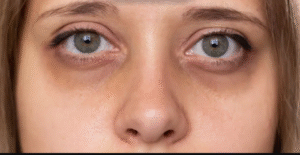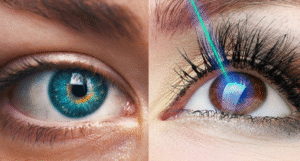When to See a Dentist

When to See a Dentist
A trip to the dentist is an important part of maintaining your oral health, but it’s easy to put off. Whether you’re nervous or waiting for the right time, you can’t just ignore the signs of trouble. If you’re experiencing any of these symptoms, it’s time for a dental checkup:
Infection: Swelling in your gums can be a sign of infection from gum disease or tooth decay. Get help from a professional to determine the cause and get treatment.
Pain: Pain in your mouth can come from damage to your teeth or gums, which can be the result of tooth decay or gum disease. Consult a dentist to find out if your pain is coming from an infection, food caught between your teeth, or another cause that doesn’t require extensive treatment.
Gum recession: Healthy gums will form a tight seal around your teeth with little space in-between. If you notice that there’s more space there than normal, it could mean that your gums are receding and allowing bacteria to enter into your bloodstream. This could lead to bone loss and other serious problems if left untreated.
Your gums bleed when you floss: If you have bad gums, they may bleed when you floss. This is because the gums are more sensitive to the pressure of pulling out the floss tightly. The bleeding can be scary but it isn’t always necessary to see a dentist right away. If the bleeding doesn’t continue after you clean and floss your mouth, then there is probably no reason to be concerned. If the bleeding continues for two weeks, then you should go see a dentist immediately because it could be an indication of periodontal disease, which can cause serious problems for your teeth and gums if left untreated.
You’ve got food stuck between your teeth: If you’ve had a meal, or even just a snack, and you can still see food stuck in your teeth after brushing, it’s time to schedule an appointment with a dentist. A healthy mouth is a cavity-free mouth. The main cause of cavities is plaque- a sticky film of bacteria that forms on the teeth. This bacteria feeds on sugars from foods and drinks, especially sugary ones, producing acids as they digest-acids which attack the tooth enamel and create holes in the teeth.
Clinical studies have shown that people are more likely to continue eating sugary foods and drinking beverages with sugar in them if they have visible pieces of food stuck between their teeth; this will build up the plaque even faster, increasing your risks for cavities and gum disease.
You have bad breath: The bacteria from gum disease can also cause bad breath, so this isn’t an uncommon sign of dental problems. Bad breath is usually caused by bacteria in the mouth that comes from plaque deposits on your teeth or gums. It’s possible to get rid of these bacteria with an antibacterial rinse and good brushing habits, but there are other treatments that are appropriate for more severe cases of this dental problem.
You have pain while chewing: The other symptom of gum disease is pain while chewing or biting down on food. Gum disease can cause your gums to become very infected and swollen, which can lead to pain when you try to chew your food. If this happens frequently, it’s best to see a dentist as soon as possible.
What Can Cause Prolonged Numbness after Dental Work?
Tooth extraction generally results in some level of discomfort or pain, especially when your mouth is not numbed. The longer the numbness lasts, however, the more likely there is some sort of complication. The medication used during the procedure may not have been strong enough to block all sensations, or the dentist may have accidentally left pieces of the tooth behind. Also, the dentist could have damaged a nerve during extraction or accidentally punctured a blood vessel, the longer your numbness lasts, the more severe these problems are likely to be.
Prolonged numbness after dental work could result from nerve injury. This is a serious problem, and requires prompt medical attention to avoid permanent nerve damage. Nerve injuries can be caused by the dentist making an error during a procedure, or they may occur as a side effect of medication administered during the procedure. To reduce the risk of this type of injury, ensure the dentist has your medical history available before starting any procedure.
Some people experience numbness or tingling in their face or other areas after the anesthetic wears off. This condition is known as post-dental injection syndrome (PDIS). The exact cause of PDIS is unknown, but it’s possible that the anesthetic leaks into surrounding nerves.
How Long Does the Numbness Last?
It’s also not clear how long the numbness will last. In some cases, the symptoms may only last for a few hours, while in others numbness may last for days or even weeks. If you have severe pain in your mouth or jaw after getting your teeth worked on, you should call your dentist and they’ll help you get rid of prolonged numbness after dental work.
What are the Benefits of Seeking Professional Dental Services?
- Help improve your smile: Dental services are a great option if you need help improving your smile. They go beyond cleaning and polishing to tackle issues like tooth decay and improve your oral health. What’s more, they can give you the perfect smile you’ve always wanted.
- Early detection of dental issues: Early detection of dental problems is a key reason to seek professional dental services. By going regularly to your dentist, you can help avoid serious problems like tooth loss, infection and gum disease. The American Dental Association recommends that everyone go to the dentist every six months for a check-up. This includes children and even newborns. Regular visits allow your dentist to check for cavities, as well as teach you how to keep your teeth healthy.
Dental problems are serious issues that should not be taken lightly. Cavities in your teeth can cause pain and may lead to an infection in your jaw or other parts of your mouth. If left untreated, infection can spread to other areas of the body, such as the heart or kidneys. Infections from the mouth can also make their way into the bloodstream, causing septicemia and death.
Key Takeaway
Dental care is a vital aspect of one’s overall health. However, some people may feel that going to the dentist can be a daunting task because they think they might not understand the dentist’s advice. Those who are unsure or do not want to put themselves at risk for additional problems should visit an experienced dental professional.




